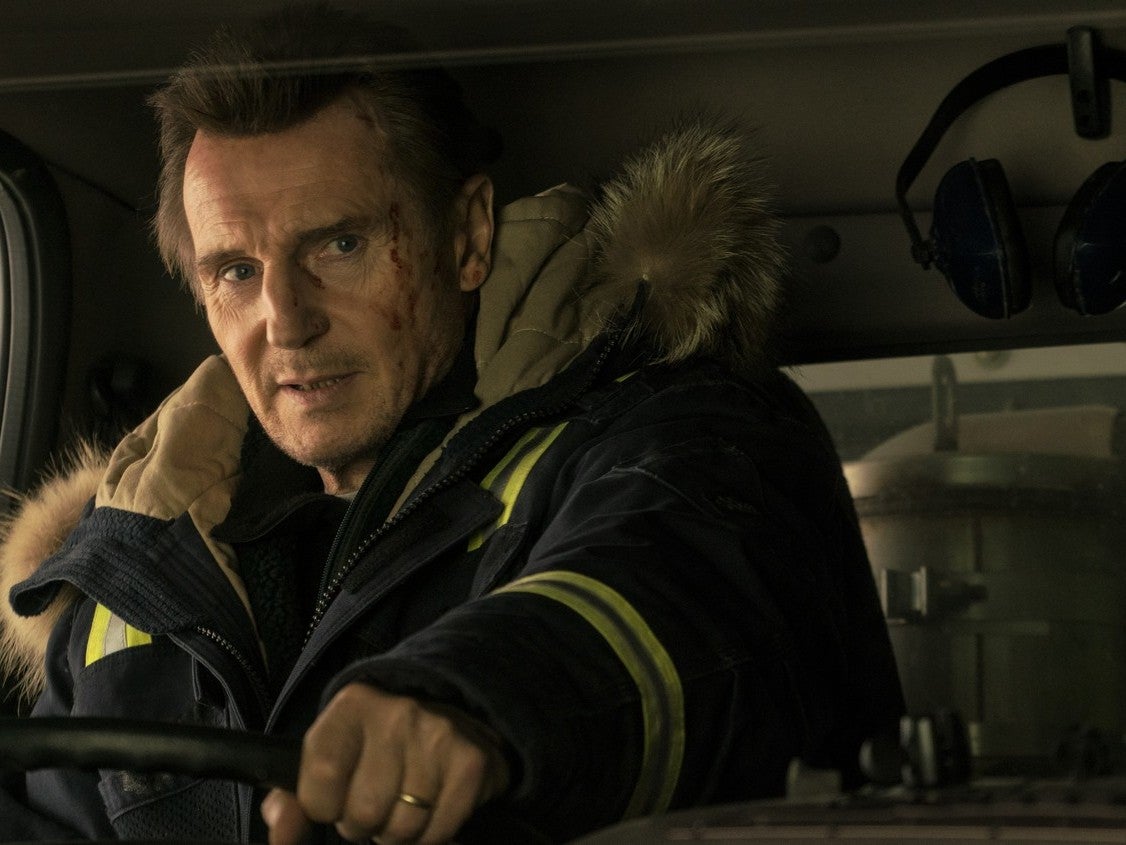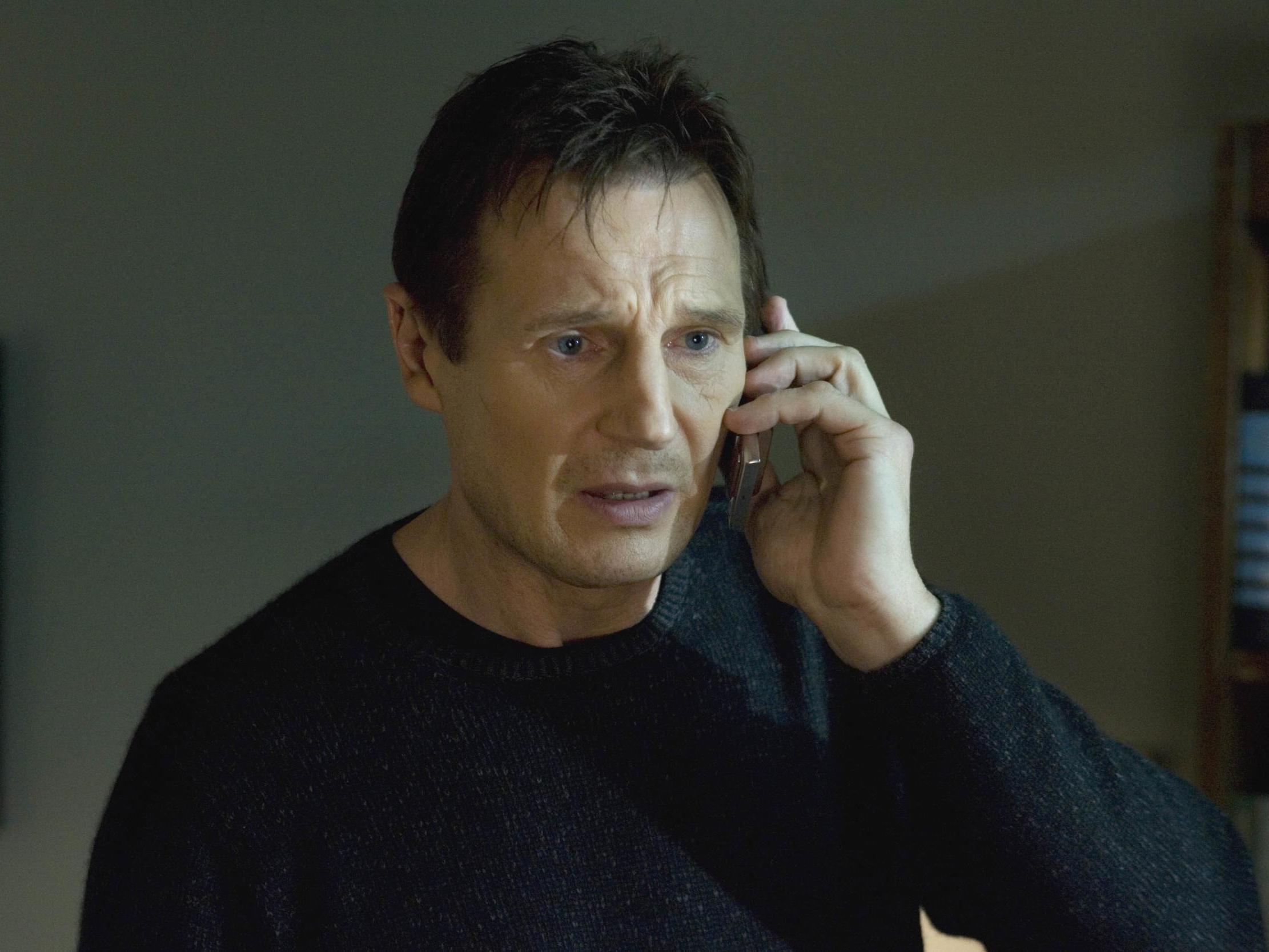Liam Neeson interview: Rape, race and how I learnt revenge doesn’t work
Exclusive: Sitting down with Clémence Michallon to discuss his latest action film ‘Cold Pursuit’, the actor recounts a disturbing incident from his past
Your support helps us to tell the story
From reproductive rights to climate change to Big Tech, The Independent is on the ground when the story is developing. Whether it's investigating the financials of Elon Musk's pro-Trump PAC or producing our latest documentary, 'The A Word', which shines a light on the American women fighting for reproductive rights, we know how important it is to parse out the facts from the messaging.
At such a critical moment in US history, we need reporters on the ground. Your donation allows us to keep sending journalists to speak to both sides of the story.
The Independent is trusted by Americans across the entire political spectrum. And unlike many other quality news outlets, we choose not to lock Americans out of our reporting and analysis with paywalls. We believe quality journalism should be available to everyone, paid for by those who can afford it.
Your support makes all the difference.Liam Neeson is sitting in an armchair with a flask of tea at his side. We are in the sprawling suite of a Manhattan hotel to talk about his latest film, Cold Pursuit. Just as he has in a number of roles since he became an action hero in his fifties, Neeson plays an everyman hell-bent on revenge. Yet here in the rigid, conveyor-belt atmosphere of the celebrity junket, the 66-year-old star of Taken is about to recount a disturbing incident from his past, a confession that he’s never made before. It will involve how he learnt about the rape of someone close to him many years ago, how he roamed the streets for a week afterwards carrying with him a cosh and brutal, racist thoughts, and how this taught him that violence and revenge do not work.
It begins as an explanation of how his latest character turns to anger. “There’s something primal – God forbid you’ve ever had a member of your family hurt under criminal conditions,” he begins, hesitantly but thoughtfully. “I’ll tell you a story. This is true.”
It was some time ago. Neeson had just come back from overseas to find out about the rape. “She handled the situation of the rape in the most extraordinary way,” Neeson says. “But my immediate reaction was…” There’s a pause. “I asked, did she know who it was? No. What colour were they? She said it was a black person.
“I went up and down areas with a cosh, hoping I’d be approached by somebody – I’m ashamed to say that – and I did it for maybe a week, hoping some [Neeson gestures air quotes with his fingers] ‘black bastard’ would come out of a pub and have a go at me about something, you know? So that I could,” another pause, “kill him.”
Neeson clearly knows what he’s saying, and how shocking it is, how appalling. “It took me a week, maybe a week and a half, to go through that. She would say, ‘Where are you going?’ and I would say, ‘I’m just going out for a walk.’ You know? ‘What’s wrong?’ ‘No no, nothing’s wrong.’”
He deliberately withholds details to protect the identity of the victim. “It was horrible, horrible, when I think back, that I did that,” he says. “And I’ve never admitted that, and I’m saying it to a journalist. God forbid.”
“Holy shit,” says Tom Bateman, his co-star, who is sitting beside him.
“It’s awful,” Neeson continues, a tremble in his breath. “But I did learn a lesson from it, when I eventually thought, ‘What the fuck are you doing,’ you know?”

All three of us know – Neeson, Bateman and I – that this is a distressing admission. “I come from a society – I grew up in Northern Ireland in the Troubles – and, you know, I knew a couple of guys that died on hunger strike, and I had acquaintances who were very caught up in the Troubles, and I understand that need for revenge, but it just leads to more revenge, to more killing and more killing, and Northern Ireland’s proof of that. All this stuff that’s happening in the world, the violence, is proof of that, you know. But that primal need, I understand.”
He continues, more generally, about violence on screen. His tone changes. We’re back, suddenly, to a normal junket interview. But this had not been the average confession to make. As he had admitted, it’s horrible, awful. Is it possible to hear that said out loud or to read those words and not judge? Then again, think of the circumstance – he had learnt someone close to him had been raped. No one would ever want to have to confront that in their own life. Do other people react that way?

Watch Apple TV+ free for 7 days
New subscribers only. £8.99/mo. after free trial. Plan auto-renews until cancelled

Watch Apple TV+ free for 7 days
New subscribers only. £8.99/mo. after free trial. Plan auto-renews until cancelled
In Cold Pursuit, the son of his character, Nels Coxman, is killed by a drug gang, sparking the desire for revenge. “I think audience members live to see [that violence on screen],” Neeson continues. “They can kind of live vicariously through it. People say, ‘Yeah but violence in films makes people want to go out and kill people.’ I don’t believe that at all.
“I think the average moviegoer thinks, ‘Yeah, punch him. Punch him.’ And they get a satisfaction out of seeing somebody else enact it, and they leave the theatre and they feel satiated in some way.”
In the real world, there are, of course, many different triggers behind that awful desire for violence. Neeson’s own story can’t be separated from the circumstances of the rape of someone close to him, can it? It is not uncommon for people to experience a desire for revenge after a sexual assault. I contacted Laura Palumbo, from the National Sexual Violence Resource Centre, a non-profit based in Harrisburg, Pennsylvania, to talk about this – without revealing Neeson’s name. Such incidents, she says, can lead to a variety of emotions ranging from shock to the shame of not being able to prevent the attack from happening.
“Often it is less obvious to the loved ones of survivors that they might actually need support in dealing with their emotions themselves, just like the survivors,” says Palumbo. They experience a secondary form of trauma, she explains. Some start thinking about what they could have done differently, and they may contemplate seeking retribution.
Gender stereotypes can reinforce those feelings. Palumbo says men face “a number of pressures” due to the way they’re typically socialised, which usually sends them the message that they should be “protectors”. When an attack does happen, they can feel powerless, which in turn can trigger a desire for control. “They want to harm the person who did this to their loved one. They want them to face the consequence. There’s that strong desire to redeem power, to redeem control,” Palumbo says. But the victim of a sexual assault must, of course, take priority, she continues – and the hope is that by receiving counselling and addressing their own feelings, loved ones can in turn focus on the survivor’s needs.
Neeson’s brief desire for such random, violent revenge is all the more alarming for the racial dimension to his confession. Lasana Harris is an associate professor of experimental psychology at University College London. Again, nothing of Neeson’s identity was revealed when I contacted him to discuss this following the interview, so he was not commenting on Neeson but on his more general experience and knowledge. Incidents as abhorrent as rape can, he says, shape the way someone thinks about a specific community. And this is not just relevant to race – for example, the thoughts one might harbour about young people, or old people as well as black people.

“I think it may have something to do with the pre-existing biases,” says Harris, though remember this cannot be taken as a judgement on Neeson himself nor this specific incident. He explains how our minds can generalise a negative experience with a person by categorising them in a way that may be flawed. Was that what was happening when Neeson walked the streets looking for a random person on whom to exact his revenge? Harris acknowledges that there is an unjustifiable prejudice when it comes to black people being perceived as perpetrators of sexual assault. “You can control it if you’re aware of the stereotype, if you’re aware of the fact that you have these stereotypes and these biases,” he says.
Some days after that short, 17-minute interview in a New York City hotel, I contacted Neeson’s publicist again to see if he would discuss his story further. He declined. But as Neeson said, the story has now been told for the first time. Perhaps that’s enough.
Cold Pursuit is released in UK cinemas on Friday 22 February
